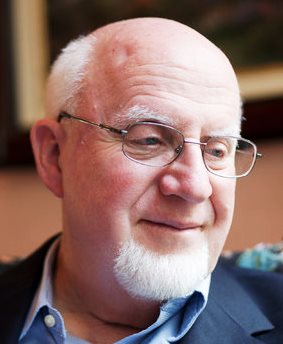
A gracEmail subscriber writes, “I like your way of using the great church families to emphasize the Father, Son and Holy Spirit in worship. Would you spell that out again.”
* * *
Different streams of the worldwide Church point us to Father, Son and Holy Spirit respectively, and we would be enriched to appropriate the good which each has to offer. The great Catholic expression of the Church (Orthodox, Roman and Anglican) preserves the rich liturgical tradition from early centuries, highlighted in the Communion or Eucharist, which both inspires and expresses our proper awe in the presence of the holy God of eternity. Most Protestant churches would benefit from a heavy borrowing of the spirit (and the time-honored language) of the Book of Common Prayer. As we contemplate the eternal Father, the Creator of all that exists, we find ourselves needing to bow, to kneel, even to prostrate ourselves before him, to allow place for reverent silence amidst all our talk and sound. Then spiritual vision transcends the narrow concerns of our own immediate group, and encompasses a worshiping universe focused on the very throne of God.
Some 500 years ago, the Reformers Luther and Calvin saw the glory of God in the face of Christ Jesus as they recovered the truths of justification by grace through faith, and passed them down to their Evangelical descendants in the ministry of the Word. The proclamation of the Gospel of Jesus Christ — the announcement that God has reconciled sinners through the once-for-all, finished work of his Son — is also at the heart of Christian worship. It convicts the conscience, compels the will and transforms the mind. The whole Church needs this reformed preaching which glorifies Jesus Christ, and which constantly declares the divine initiative throughout the process of human salvation.
Two centuries after the Reformation, God raised up the Wesleys, who stressed the necessary supernatural power of the Holy Spirit to work permanent and thoroughgoing change in even us redeemed sinners. That Methodist movement birthed the Holiness revival a century later, from whose bosom came the Pentecostal revival a century after that. The charismatic renewal of the mid-20th century lit the same flame in many denominations. With each of these revivals, renewed hearts erupted in the music and lyrics of new songs. The entire Church needs power from heaven to do heaven’s work, and God is increasingly pouring it out. Sincere, heartfelt praise is a hallmark of the presence of the Holy Spirit.
These three sturdy elements from across the Christian spectrum provide much-needed building blocks for the worldwide Church of the future — a focus on the Father (expressed in the liturgical tradition mediated through the Catholic and Anglican line and highlighted in the Communion); a focus on the Son (recovered in the clear evangelical Word of reformation preaching); and a focus on the Holy Spirit (a vision recaptured by the Wesleyan, Holiness, Pentecostal and charismatic parts of the Church, expressed in music). Today, Christ’s body is being built up by the Spirit to be a holy habitation of the Father. May the day hasten when all God’s people come to share in every good thing which each of them has found and has been given.